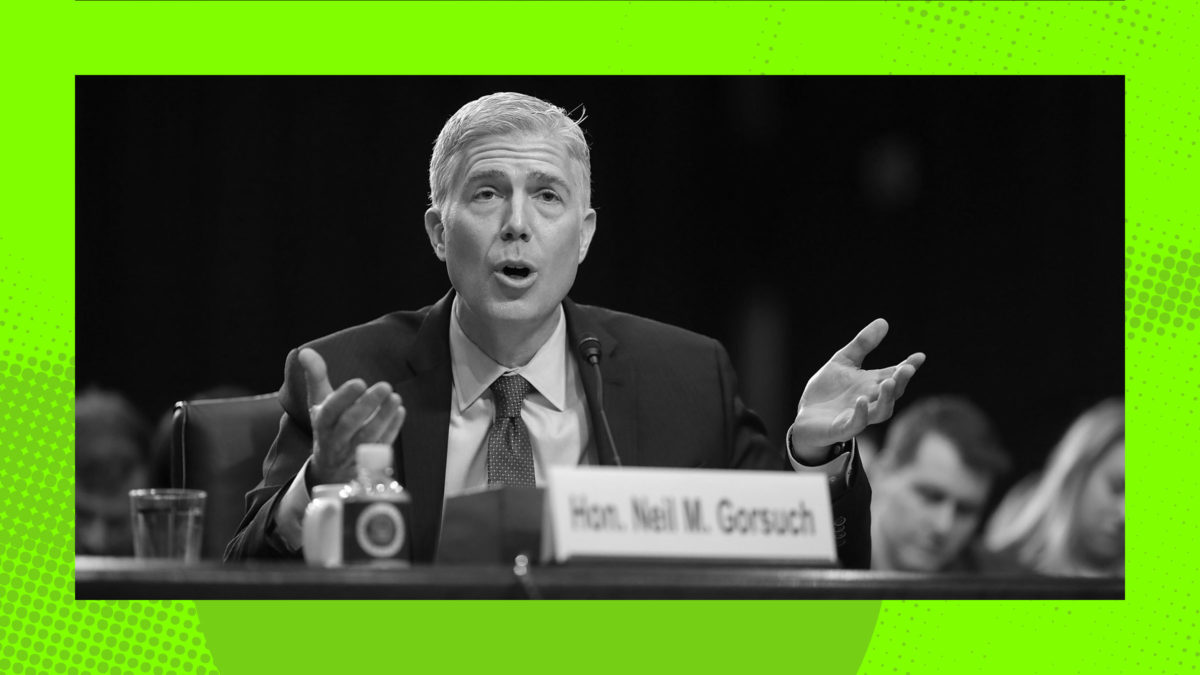For years, Joseph Kennedy was a junior varsity football coach at a public high school in Bremerton, Washington, until he insisted on his right to pray with his players at midfield at the end of games. When the school district told him to stop the public version but offered a private space to accommodate him, he refused. More than that, he sued, claiming the district was discriminating against him for his faith. Today, the Court decided in his favor in Kennedy v. Bremerton School District, saying that the Free Speech and Free Exercise Clauses of the First Amendment protect his right to pray without fear of official reprisal.
Conservative legal activists have long engaged in plaintiff shopping—finding a sympathetic person whose claim can push forward a desired change in law. The Pacific Legal Foundation, for example, is at the Supreme Court representing the Sacketts, an Idaho couple whose fight with the government over their homebuilding plans has been recast as an effort to weaken the Environmental Protection Agency’s regulatory power Kennedy, too, has lawyers for the First Liberty Institute, a well-funded, religious-right-oriented organization, in his corner, and former Solicitor General Paul Clement pressing his case at oral argument.
Now, with six sympathetic justices on the Court, the conservative movement has moved beyond plaintiff shopping to fact invention. The opinion in Kennedy, written by Justice Neil Gorsuch, signals to these advocates that they can fudge timelines and fabricate narratives going forward, confident that this Court will uncritically accept them as true. The story before the justices didn’t support their latest assault on the separation between church and state, so they decided to tell their own story instead.
Majority: “Mr. Kennedy prayed during a period when school employees were free to speak with a friend, call for a reservation at a restaurant, check email, or attend to other personal matters. He offered his prayers quietly while his students were otherwise occupied.”
Dissent: pic.twitter.com/RsYizGSLxE
— Steve Vladeck (@steve_vladeck) June 27, 2022
The majority buys into Kennedy’s victimhood narrative that he lost his job for merely giving “a quiet prayer of thanks.” But the truth is that there was nothing quiet about Joseph Kennedy’s prayers, during which he’d hold helmets aloft, kneeling players circled around him like a Friday Night Lights scene, and pepper his postgame fire and brimstone speeches with “overtly religious references.” Sometimes he would invite the opposing team’s coaches and players to join, too.
The district took notice of Kennedy’s behavior in 2015, when a coach from another district mentioned the prayers to school officials. A parent complained that their child felt “compelled” to pray in order to receive adequate playing time. Other parents similarly reported that their kids didn’t want to separate themselves from the team by declining to participate.
If Kennedy had silently, privately prayed after games in ways that did not call attention to himself, we might never have heard of Joseph Kennedy, the Praying Coach. The problem is that this is simply not what happened. When the school district told him to stop, he hired a lawyer, contacted the media, and began crafting a narrative about religious persecution. He told local media of his plans to defy the school district’s order and pray at the upcoming homecoming game. That prayer turned out to be even more of a spectacle than usual: People rushed the field to join Kennedy, who was surrounded by television news cameras, and some people even jumped fences and knocked over student band members in their fervor. The school’s head coach worried he’d be shot by one of Kennedy’s supporters, and eventually quit.
When Kennedy’s contract expired, instead of reapplying, he became the poster child for the far-right’s campaign to inculcate Christianity into public and civic life. The Court’s conservative majority ate it all up, criticizing the school district for singling out “private religious speech for special disfavor” and characterizing its response as “suppression” and “censorship.” Deciding this case any differently, Gorsuch writes, would, “treat religious expression as second-class speech.”
There’s a mile-wide gap between how the court’s conservatives describe what the coach in Bremerton was doing, and what he was actually doing.https://t.co/XCDdsw4Fhs… pic.twitter.com/o2zL3Uejae
— Radley Balko (@radleybalko) June 27, 2022
In Gorsuch’s alternate reality, students were not pressured or coerced to join Kennedy’s prayer; they all just happened to want to join in and please this authority figure. The Court downplays Kennedy’s manipulation of the media or the public spectacle that he created. Instead, the majority claims that the district disciplined him only for his decision to persist in praying quietly without his players after the controversy was in full swing.
As Justice Sonia Sotomayor points out in dissent, however, treating Kennedy’s “new” prayers as “occurring on a blank slate” dispenses with the years of public prayers—context of which everyone at the school was aware—that led to that point. Significant chunks of her dissent, which Justices Stephen Breyer and Elena Kagan joined, focus on how the majority distorted the record before it. “The Constitution does not authorize, let alone require, public schools to embrace this conduct,” she writes. “To the degree the Court portrays petitioner Joseph Kennedy’s prayers as private and quiet, it misconstrues the facts.”
It is no coincidence that Kennedy’s case ended up before the Court this term, with facts warped and tailored to maximize the odds of another opinion establishing Christian supremacy as an official policy of the federal government. Kennedy’s lawyers at the First Liberty Institute understand that the justices are willing participants in their conservative activism, and won’t let a little fact-checking get in the way. Why wait for the perfect petitioner if the justices will let you invent one out of thin air?

